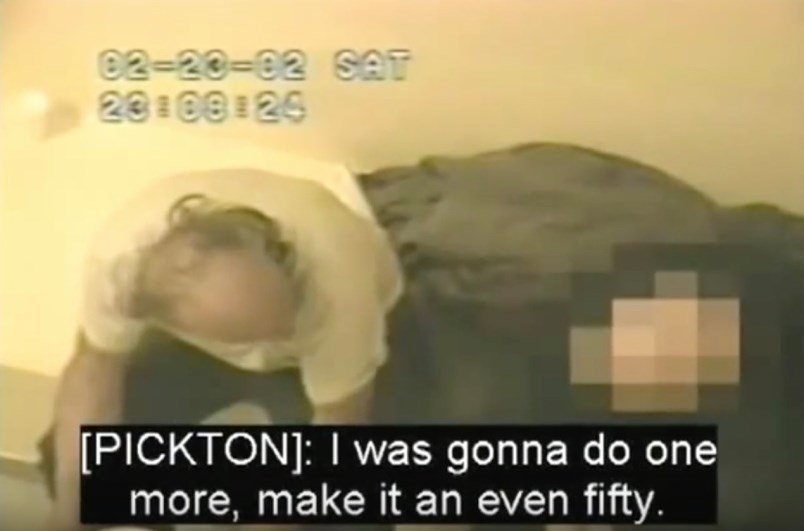The following letter was written by Delta Mayor George Harvie on behalf of 12 other Metro Vancouver mayors (listed below), addressed to Arif Virani, Minister of Justice and Attorney General of Canada.
Dear Minister Virani,
As Mayors, it is our duty to advocate for the safety and security of our residents. With this responsibility in mind, I implore you to consider the parole eligibility of Robert Pickton, a prolific offender whose actions have impacted many, especially the Indigenous communities, as many of his victims being of Indigenous ancestry.
Furthermore, I request for a critical reassessment of our parole and sentencing framework for prolific offenders and mass murderers, ensuring alignment with the overarching principles of justice.
Robert Pickton's heinous crimes have left an indelible scar on the fabric of our society, particularly within the communities of British Columbia. The magnitude of his actions, which resulted in the deaths of numerous innocent individuals, is beyond comprehension and cannot be overstated. The pain and suffering inflicted upon the victims and their families continue to reverberate throughout our province, and the wounds inflicted by Pickton's atrocities remain raw and profound.
Allowing Robert Pickton any opportunity for parole would not only undermine the integrity of our justice system but also jeopardize the safety and well-being of our communities. His demonstrated lack of remorse and the depravity of his actions serve as stark reminders of the danger he poses to society.
Furthermore, granting parole to an individual of such irredeemable character would send a chilling message to victims of crime, their families, and the broader public, suggesting that justice can be compromised and that the most heinous offenders may one day walk freely among us. Such a notion is unacceptable and undermines the fundamental principles of accountability, deterrence, and public safety upon which our justice system is built.
Moreover, Pickton’s potential parole eligibility not only retraumatizes the victims' families but also undermines the ongoing and collective healing process of the Indigenous communities, undermining the significant and transformative change called for in the “Calls for Justice” in Final Report of the National Inquiry into Missing and Murdered Indigenous Women and Girls (Final Report-MMIWG).
Should Pickton apply for parole, we respectfully urge you to take all necessary measures to ensure that he is not granted parole under any circumstances.
It is incumbent upon us, as elected officials, to uphold the sanctity of our justice system and to prioritize the safety and well-being of our citizens above all else.
This action would be in line with the Call for Justice #1.5, issued as a legal imperative, outlined in the Final Report-MMIWG as noted below.
- 1.5 We call upon all governments to immediately take all necessary measures to prevent, investigate, punish, and compensate for violence against Indigenous women, girls, and 2SLGBTQQIA people.
In 2011, Canada commendably passed legislative amendments through Bill C-48, the Protecting Canadians by Ending Sentence Discounts for Multiple Murders Act, enabling courts to impose consecutive life sentences for those convicted of mass murders, essentially establishing a system resembling life imprisonment without parole. This legislative action was a substantial step in ensuring that sentences genuinely reflect the gravity of such grave crimes, making the notion of "life imprisonment" for mass murderers substantially more impactful.
However, the Supreme Court of Canada’s 2022 decision in R. v. Bissonnette, which declared such extensions of parole ineligibility unconstitutional, struck down key elements of Bill C-48. This ruling highlights the urgent need to reassess parole eligibility criteria and sentencing laws.
It is crucial that our laws not only respect the Charter but also uphold the principles of justice, ensuring that penalties for heinous crimes are just and maintain public confidence in our criminal justice system. Such legislative review is essential to balance the need for public safety, the rights of the accused, and the necessity of a sentencing framework that genuinely reflects the gravity of the offences committed.
Thank you for your attention to this critical matter. I trust that you will give it the consideration it deserves.
- George Harvie, mayor, City of Delta
Others that signed the letter:
- John McEwen, mayor, Village of Anmore
- Jamie Ross, mayor, Village of Belcarra
- Mike Hurley, mayor, City of Burnaby
- Ken Berry, mayor, Village of Lions Bay
- Nicole MacDonald, mayor, City of Pitt Meadows
- Brad West, mayor, City of Port Coquitlam
- Malcolm Brodie, mayor, City of Richmond
- Ken Sim, mayor, City of Vancouver
- Mark Sager, mayor, District of West Vancouver
- Megan Knight, mayor, City of White Rock
- Meghan Lahti, mayor, City of Port Moody



